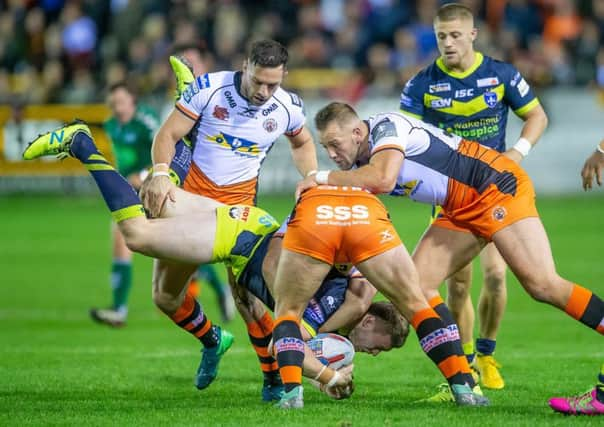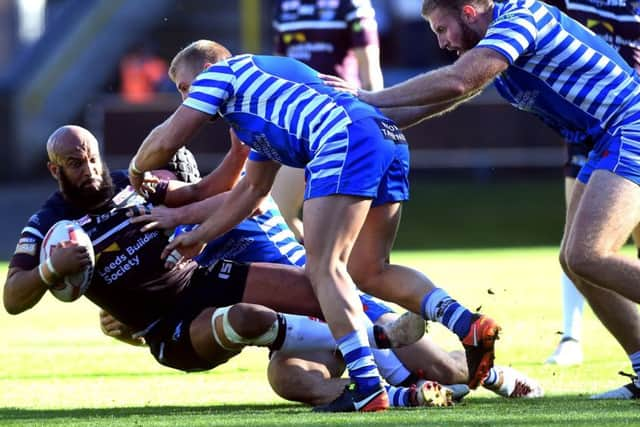Peter Smith - '˜Fairer' structure needs to be allied to important rule changes


This weekend marks the end of an ill-fated era with the last round of the Super-8s, Qualifiers and Championship Shield.
Ironically, the Qualifiers are being scrapped after a season in which they have fulfilled their purpose and proved far more exciting than the utterly predictable top-eight.
Advertisement
Hide AdAdvertisement
Hide AdWith one game to go, six of the eight teams in the Qualifiers are still in with a chance of playing top-flight rugby next year and it is possible a team on 10 points will feature in the million pound game for the first time.
Next year’s system is fairer and probably provides Championship teams with a better prospect of going up a division, though this will be the third successive season a side has been promoted.
In the 1980s rugby league operated a system of four-up, four-down between the two divisions, but it is harsh if a team finishing ninth in a 12-club competition faces the drop. Next year the bottom club will go down and that provides a bit more stability for the teams a few places higher up the table.
Equally, the top-five play-offs to decide promotion from the Championship will give the leading lower division clubs a better shot than the Qualifiers.
Advertisement
Hide AdAdvertisement
Hide AdBut results last weekend, when three Championship teams beat Super League opposition, strengthened the case for a play-off between the second tier Grand Final runners-up and the 11th-placed club in Super League.


However, the structure is not all that’s likely to alter before next season kicks off. A rules meeting has already been held and some laws of the game are up for change. Nothing has been confirmed, but there seems to be a move to make the sport in this country more like Australia’s NRL.
It certainly makes sense for laws of the game to be standardised. Leeds Rhinos found that out to their cost in February when, two days before the match, they discovered two referees would be in charge of the World Club Challenge at Melbourne Storm.
Interestingly, when Australian and New Zealand players tour this country, under international rules with one referee, they tend to prefer that.
Advertisement
Hide AdAdvertisement
Hide AdThe free-play law, used here but not in the NRL, may be set for the chop and that would be a welcome development. It slows the game down and matches go on for long enough as it is. Interchanges could be reduced from 10 to eight, which is an interesting one.
It would have a massive bearing on certain players, who are used in short spells for their impact off the bench and coaches would need to alter their approach.
But softening up the opposition pack and smaller men exploiting tiring forwards is something that has been lost to the game and it would be good to see it back.
The NRL shot clock is also under consideration and would be another welcome innovation. In the NRL, teams are penalised if they take more than a specified time over a drop-out or to feed a scrum.
Advertisement
Hide AdAdvertisement
Hide AdOne NRL law which would not be appreciated in Super League is golden point. NRL games which end all square go into extra-time and the next score wins. This brings nothing to the sport. A draw is a legitimate result and there’s nothing wrong with teams sharing the points if they can’t be split after 80 minutes.
Anyway, it is not so much the laws of the game that make the NRL a superior competition. Australia has superior infrastructure and more and better-quality players.
Axing the free play or reducing the number of interchanges may speed up Super League and possibly make it better to watch, but won’t attract new or lapsed fans.
Of more concern are unpopular kick-off days or times, matches being moved at short notice, too many games against the same opposition in one season, the lack of national media interest and decline of the Challenge Cup. And that’s just for starters.
Whatever laws the game is played under next year, until issues like those are addressed rugby league won’t move forward.